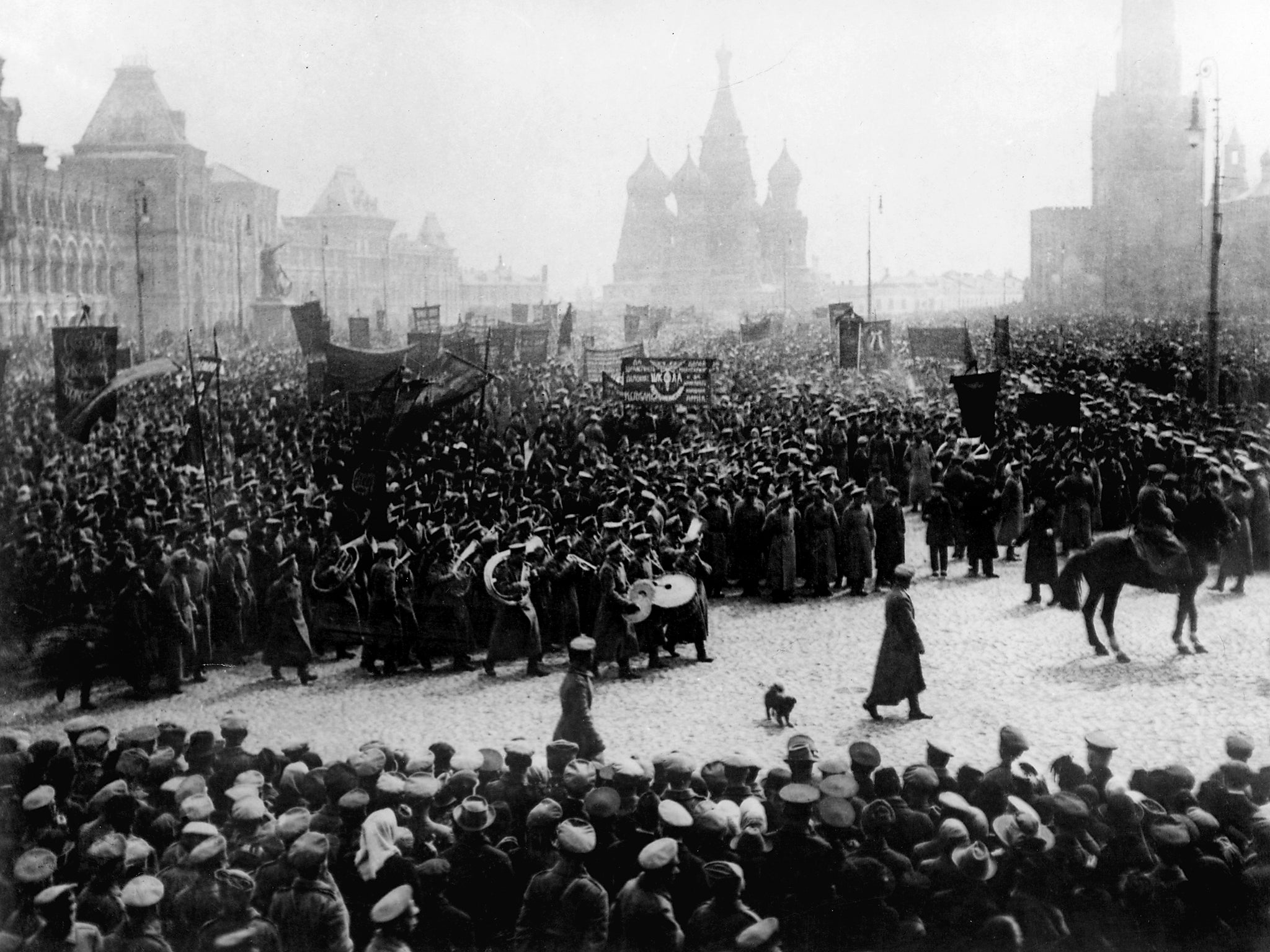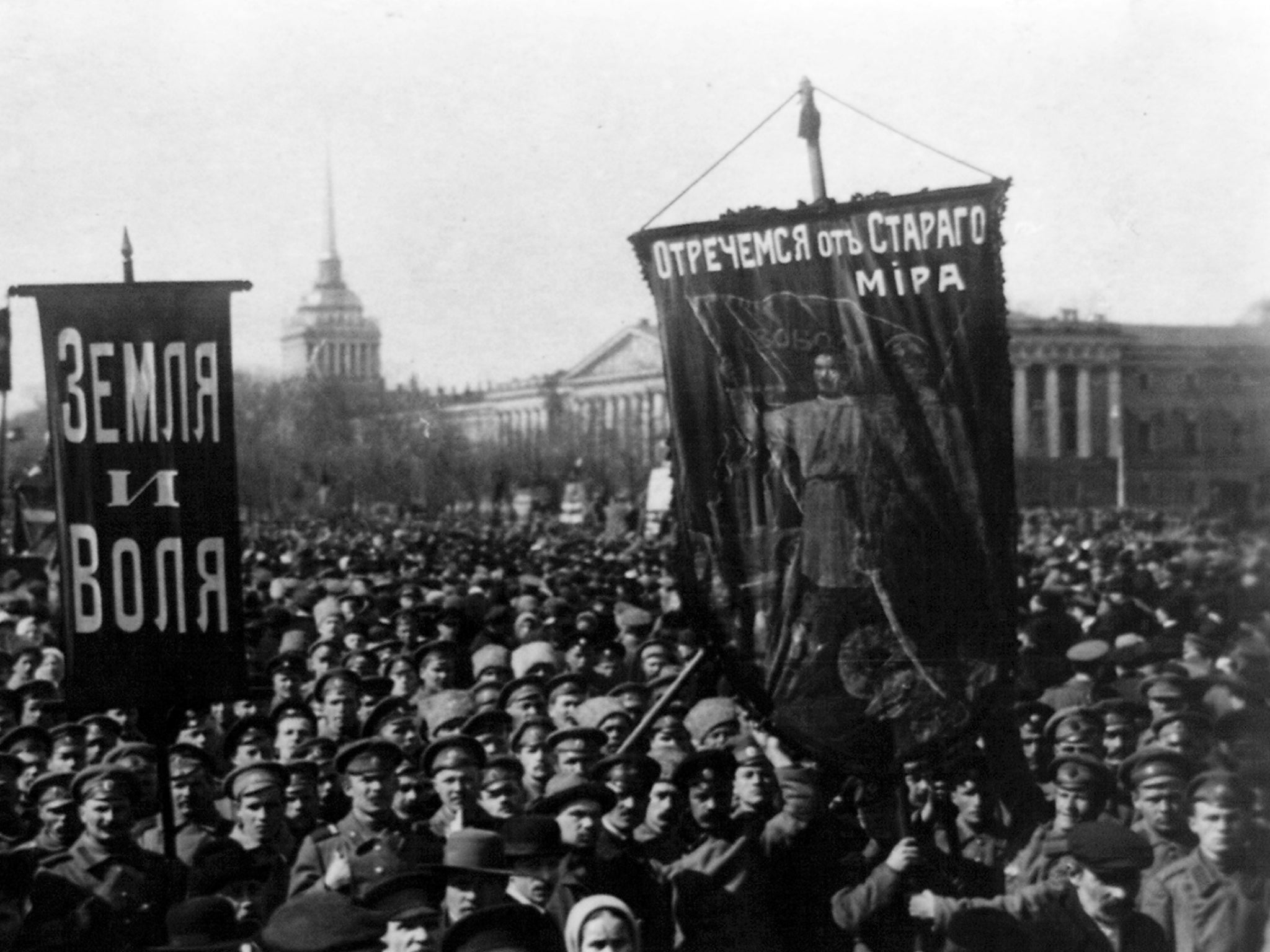As it marks the centenary of 1917, is Russia on the brink of another revolution?
The common fear of the mob still exists, as it has among the Russian intelligentsia since the 1980s. But both in Russia, and in Ukraine, young socialist voices exist for the first time in decades

Your support helps us to tell the story
From reproductive rights to climate change to Big Tech, The Independent is on the ground when the story is developing. Whether it's investigating the financials of Elon Musk's pro-Trump PAC or producing our latest documentary, 'The A Word', which shines a light on the American women fighting for reproductive rights, we know how important it is to parse out the facts from the messaging.
At such a critical moment in US history, we need reporters on the ground. Your donation allows us to keep sending journalists to speak to both sides of the story.
The Independent is trusted by Americans across the entire political spectrum. And unlike many other quality news outlets, we choose not to lock Americans out of our reporting and analysis with paywalls. We believe quality journalism should be available to everyone, paid for by those who can afford it.
Your support makes all the difference.“THANK YOU, GREAT-GRANDFATHER, FOR THE VICTORY”, read the T-shirts worn by a leftist contingent in a recent Mayday demonstration in Moscow.
The slogan sums up a difference between what could roughly be called the old and new Russian left – the priorities given to what were known in the USSR as the Great October Proletarian Socialist Revolution, and the Great Patriotic War.
As in Britain, commemorations of the latter get bigger the fewer people there are alive who fought that war. Images of Stalin are commonplace on Victory Day, and “fascist” means “German” (sometimes “Ukrainian”) rather than a political ideology based on nationalism and racism. This project of forgetting is partly what the original slogan “Thank you, Grandfather, for the victory” meant. The counter-T-shirt worn by Mayday demonstrators pointedly thanked an earlier generation for what they did: overthrowing first Tsarism, then capitalism altogether, embarking on an attempt to create the world’s first socialist state.
The current Russian government owes some of its support to the millions sentimentally attached to memories of Soviet socialism. Accordingly, it seldom touches Lenin statues or the man’s pickled body on Red Square. But the memory of the February and October revolutions is, for them, the purest poison.
The current pantheon is a synthesis that corrals together Nicholas II, Stalin and Brezhnev as great state-builders against the more destabilising, utopian socialism of Lenin, Trotsky or even Khrushchev.

There is still a Revolution Square near the Kremlin – but a revolution taking place there is by far the government’s worst fear, much more so than the conservative, Orthodox Christian and sometimes even Tsarist politics of the official Communist Party.
The common fear of the mob still exists, as it has among the Russian intelligentsia since the 1980s. But both in Russia, and in Ukraine (1917 happened there too), young socialist voices exist for the first time in decades.
One of the people recently seen wearing the great-grandfather T-shirts was the Marxist poet Kirill Medvedev, whose work in recent years has gone from being personal to agitational; he is one of a generation of leftist poets and playwrights whose work focuses on the very matters – class, gender, anger – that are otherwise ignored in contemporary Russia.
This new activist movements include Roman Osiminkin, Keti Chukhrov, Galina Rymbu and Pavel Arseniev, who was responsible for coining the slogan of the 2012 Bolotnaya protests, a Russian pun that means both “you can’t represent us” and “you can’t imagine us”. Artists as disparate as cartoonist Victoria Lomasko and the conceptual collective Chto Delat? (the name translates as “what is to be done?”, a name deriving from Lenin and the 19th-century utopian Chernyshevsky) explicitly criticise Russian capitalism.
Some of these people are members of the Russian Socialist Movement, which was part of the Left Front – an alliance to the left of the Communist Party, repressed after 2012, when its leader Sergei Udaltsov was imprisoned.
Russia’s dismembering of Ukraine can be understood as a means of showing the consequences of revolution.
Ukraine too has its unorthodox left, with groups such as the Political Critique, linked to Kiev’s Visual Culture Research Centre, participating and documenting the Maidan protests. Since then they’ve found themselves absurdly denounced as pro-Russian “separatists”; their current exhibition shows their Kiev headquarters being attacked and vandalised.
They argue that Ukraine’s “decommunisation” – which sees even streets named after anarchists like Kropotkin and Sacco & Vanzetti being renamed after nationalists – is aimed at making sure that “the demand for social justice cannot be expressed in terms of class conflict or economic equality” as Sergey Movchan puts it, but only in terms of personal evil and national victimhood.
In Russia itself, 2015 and 2016 saw the largest labour unrest for some time, with truckers, miners, farmers and auto-workers all striking or protesting. These actions, however, are vulnerable to fizzling out when the local boss, or the Big Boss himself, comes in and solves specific local problems.
In What is to be Done? Lenin argued that ordinary people don’t come to question the system itself on their own, only to fight for a decent place in it. Accordingly, as Kirill Medvedev puts it, “the goal of today’s left artist must be to use one or another link to the underground outbursts of the oppressed – to discover their link to history”. And this is the year in which that connection may finally happen.
Owen Hatherley is an author and critic. His books include ‘Landscapes of Communism, A History Through Buildings’
Join our commenting forum
Join thought-provoking conversations, follow other Independent readers and see their replies
Comments